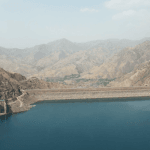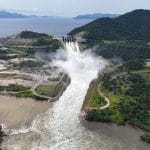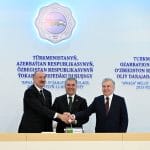Greece and Bulgaria signed on December 10 a long-delayed final investment agreement (FID) to build a 180-kilometre natural gas pipeline to help Sofia reduce its heavy dependence on Russian energy supplies. A Bulgarian-Greek joint venture that also includes Italian energy group Edison will build the Interconnector Greece-Bulgaria (IGB) with an initial annual capacity of 3 billion cubic metres per year.
“This signing gives the real start of the project, which is strategic not only for Bulgaria and Greece, but also for all southeastern Europe,” Bulgarian Energy Minister Temenuzhka Petkova said after the ceremony, also attended by her Greek counterpart Panos Skourletis.
The Greek energy minister also called the IGB a strategic project that enjoys the political support of Sofia and Athens, which will contribute to EU energy security. IGB, the Trans Adriatic Pipeline (TAP), which will bring gas from Azerbaijan’s Shah Deniz field, and the new liquefied natural gas (LNG) terminal in Alexandroupolis will help Greece became a gas hub in the Balkans, he said. He added that IGB’s construction will start at the second half of 2016 and will take two years to complete. “At the end of the second half of 2018, the pipeline will be operational,” Skourletis said.
IGB is estimated to cost about €220 million and will be partially financed by a EU grant of €45 million. Bulgaria’s state owned energy holding company BEH has a 50% in the joint venture, while Greek public natural gas supply corporation DEPA and Edison hold 25% each.
Bulgarian Prime Minister Boiko Borisov said his country would aim to boost the IGB’s capacity to 20 billion cubic metres in the future.
Also on December 10, Bulgaria’s deputy Prime Minister Tomislav Donchev and Klaus-Dieter Borchardt, director of the European Commission’s Internal Energy Market Directorate, agreed to establish a joint working group to support the development of a gas hub in Bulgaria designed to serve the whole Balkan region.
Earlier this week, US Secretary of State John Kerry hailed Athens’ efforts to implement strategic energy projects that will cut Europe’s dependence on Russian gas, including the IGB pipeline.
A gas connection with Romania is now expected to be ready by the middle of 2016 and a gas pipeline with Serbia should also be ready in 2018.
Peter Poptchev, a long-time Bulgarian ambassador-at-large for energy security, told New Europe on December 10 that at a recent conference US energy companies Cheniere and Noble as well as France’s ENGIE have expressed an interest in utilising Greece’s LNG terminal on the island of Revithoussa and IGB for LNG deliveries, “as soon as IGB becomes operational”. He explained that if gas from Azerbaijan’s Shah Deniz 2 field would not come to Greece and Bulgaria before 2019 – 2020, IGB would still be able, in principle, to transmit gas from other sources – LNG from Revithoussa or the new terminal in Alexandroupolis or Kavala.
Meanwhile, sources with deep knowledge of gas regulation have said that they would not be surprised if Gazprom raised objections to IGB’s operations – in view of some specific clauses in the gas transit and gas delivery contracts the Russian gas monopoly has with companies in Bulgaria and Greece.
follow on twitter @energyinsider







